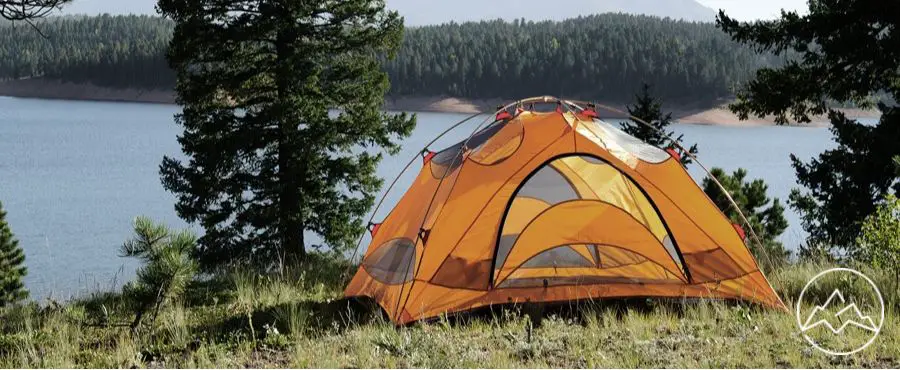Camping is easily one of the most fun and relaxing activities available to individuals, families, and friends. Not only does camping allow you to commune with your natural environment, but it has been shown to have several health benefits. Some of these benefits include reducing stress, enhancing creativity, and clearing mental blocks.
Of course, if it’s your first time camping, you might be a little intimidated about what awaits you out in the woods. To lessen your concerns and increase your likelihood of a successful trip, we’ve put together this beginner’s guide to camping. On this list, you’ll find everything you need to know about how to go camping, how to stay safe, and how to have fun at the same time.
Camping basics
Regardless of your location, there are a few camping basics that you’ll need to purchase before heading out into the woods. Though camping in extreme conditions (cold, hot, etc.) may require additional purchases, it’s a safe bet that you shouldn’t enter the woods at all without the following items checked off your list.
- Tent or shelter – No matter where you camp, you need to be safe from the elements.
- Sleeping bag – Not just for warmth, but for comfort as well.
Tips for beginners
One of the best ways to introduce a topic like “camping for beginners” is to go over some tips, tricks, and pieces of advice. Many of these come directly from veteran campers and National organizations. That said, with so many helpful tips in one place, our official camping guide will prove helpful to beginners and experienced campers alike.
Rent or borrow expensive gear
One tip that is often left off of the average “camping for beginners” list is the amount of money that can be saved by renting or borrowing gear. If it’s your first time in the woods with your family, there’s no real way of knowing that you’ll enjoy the experience. Why spend thousands of dollars on equipment you’ll have to turn around and sell when you decide camping isn’t for you?
You can rent everything from tents to camping stoves to recreational vehicles at a fraction of the cost of purchase. Providing you can keep them in good shape, you’ll end up saving a fortune on your first foray into the woods.Check out our picks for the best camping tents!
Know your campsite
Though it may seem obvious, beginners often don’t realize how essential it is to know their campsite before pulling up with their tent in tow. You’ll first want to know the laws and rules associated with the campground and the type of camping you’re doing. Second, you’ll want to know what services are available to you should something go wrong.
Know your surroundings
To further elaborate on the above point, it’s also imperative to know your surroundings when going camping. What are the current day and night high and low temperatures? What sort of animals can you find in the area? Are there any unique supplies I might need? Are there any special precautions I need to take? Lastly, before entering the woods, it is essential to know how to get out.
Pick the right sleeping bags
Not all sleeping bags are created equal. For starters, nearly all sleeping bags have a “seasonal rating” or “temperature rating”. Where a summer bag might be perfect for a trip into the Georgia woodlands, it could lead to serious trouble in Main or New Hampshire. Even desert areas are known for reaching extremely low temps at night. Do your research and plan accordingly.
Practice makes perfect
Mother Nature is unpredictable, so practicing various camping skills in a controlled environment (like your garage or backyard) is well worth your time. You don’t want to be in a torrential downpour in the middle of the woods when you find out you don’t know how to set up your tent or light a proper fire. It also gives you time to learn the ins and outs of all your camping gear.
Meal plan and meal prep
Food is an obvious essential in most camping situations, even if you’re planning on catching or hunting your own. That said, just taking a few bags of groceries into the woods is both impractical and unwise.
You’re much better off planning each meal ahead of time and ensuring that you can prepare it in all weather conditions. You’ll also want to make sure you have all the utensils you need and can wash, sanitize, and dry them properly. Lastly, you’ll want to do any significant food prepping before you head into the woods, especially on your first trip.
Plan for your comfort level
There are men and women out there that are so comfortable “roughing it” that they can enter the woods with little more than a compass and a pack of matches. As you’re reading a beginner’s guide to camping, it’s safe to assume you’re not that person.
Overall, it’s important to remember that camping is not a contest. If you’d be more comfortable with canned food and an air mattress, or even a well-equipped RV, go ahead and do it. If you don’t adequately plan for the level of comfort you need, you’re almost guaranteed to have a bad first-time camping experience. You may also want to explore what’s known as “car camping” as well.
FAQs About Camping for Beginners
What equipment do I need to bring when camping?
How can I ensure my safety while camping?
Is there a particular way to set up my tent?
What types of food should I bring for camping trips?
Are there any special precautions I should take in bear country?
What activities are best for beginners when camping outdoors?
The woods await you!
As you can see, there are a lot of beginner tips that you should consider before committing to a night out in nature. Where some of them will save you time and money, and others could potentially save your life.
Of course, as long as you have food, water, shelter, and common sense, you should have a great time on your first camping trip. Go enjoy the fresh air!




Great tips! I’m camping for the first time in a few years and am a little nervous, but these helped me feel a little better about it! Thanks for Sharing.